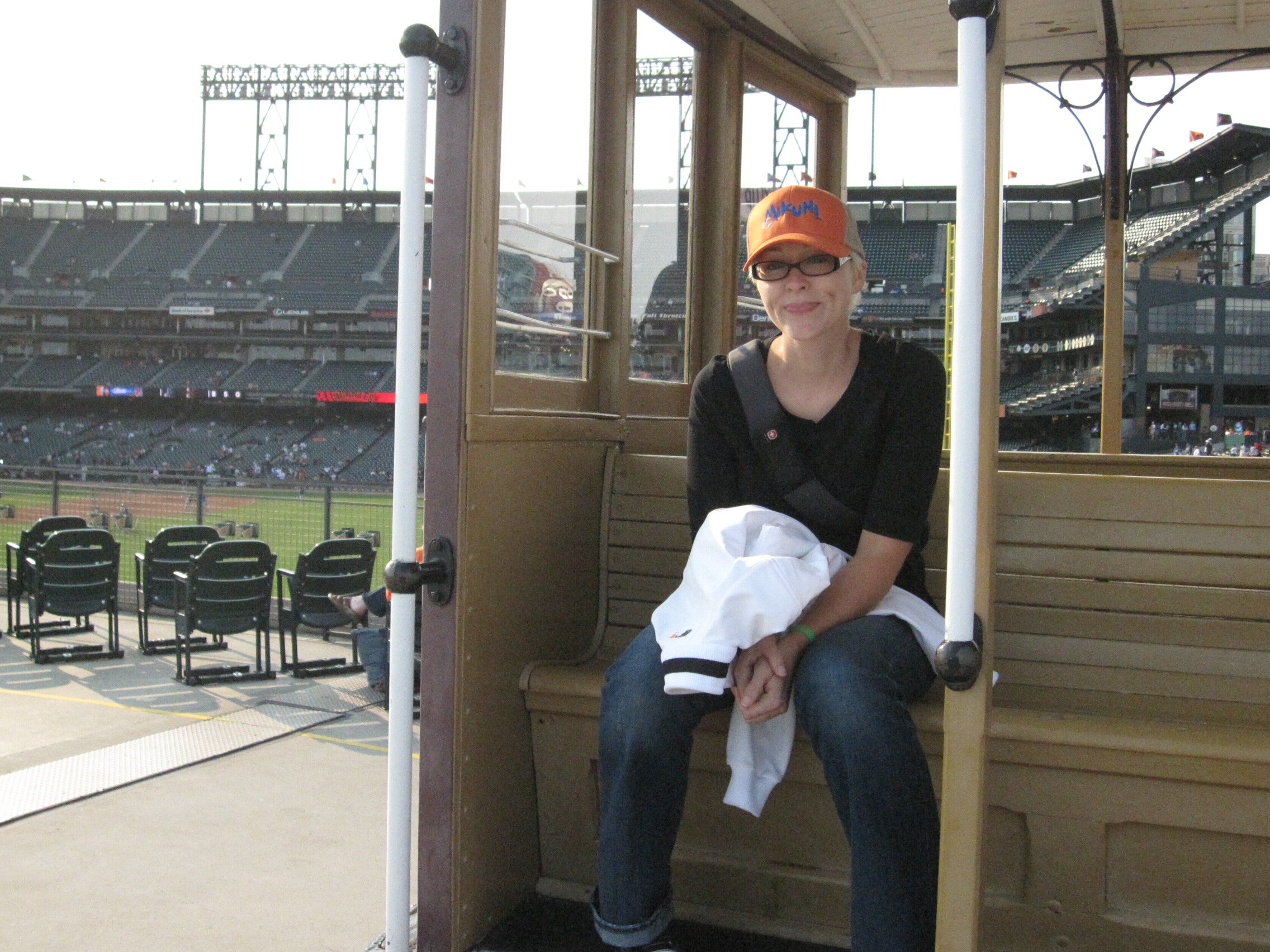Baseball: the ultimate cancer therapy
PHOTO: Me waiting for the game to start
I didn't grow up in a family that was into sports. My annual exposure to sporting events was the Super Bowl, which was primarily an excuse to consume meatball subs and large amounts of French onion dip.
I never played Little League. In high school my favorite P.E. class was singles tennis. I never had the experience of rooting for a team.
Yet somehow I found myself with a best friend who loves baseball.
My BFF, Melanie (Mel), loves baseball. She comes from a family of die-hard San Francisco Giants fans, and for years they've shared a set of season tickets near third base at AT&T Park. It was only natural my first exposure to Major League Baseball was with Mel. This was before cancer, and while I appreciated the view of the Bay, I was completely lost when it came to following the game.
Fast forward to me at age 29...
I was diagnosed with brain cancer in 2008. Between brain surgeries, seizures, physical therapy, chemo (and then losing my job), I suddenly found myself with a lot of time on my hands.
Mel was working for the local minor league baseball team at that time--the Sacramento River Cats, the Triple A affiliate for the Oakland A's. (I didn't even know what that meant four years ago). Mel started giving Brett and I tickets to day games using some of the free passes she had as an employee.
The more I was exposed to baseball, the more questions I had.
Why does the umpire do that? Who is the guy standing by first base in that rectangle? How come the runner isn't out when he runs past first base? Why are there so many pitchers on the team? What's the point of a designated hitter? Wait, how come the Giants don't have a designated hitter, but the A's do? You mean there are two leagues?
So I did what any self-respecting baseball fan would do: I bought Baseball For Dummies, and read it cover to cover. (In case you missed it, there were two funny parts in that last sentence. 1. A joke: no self-respecting baseball fan would ever buy Baseball For Dummies, and 2. No joke: I really did buy that book and read it.)
Start chemo in spring? It must be fate
I started Temodar chemotherapy in the spring. It was the start of baseball season, and whether I watched on TV, listened on the way to medical appointments, or followed online and through Twitter, the national pastime became my way to pass the time between treatment. Baseball kept my mind off the things I could not change or control.
My first year as a person "living with cancer" was also my first year as a baseball fan. I saw the Giants in San Francisco (+/- 5 games), the Athletics in Oakland, the Mariners in Seattle, and I can't even count the number of River Cats games I went to in Sacramento.
And through it all, my team of choice was clear: I was a Giants fan.
Whenever Tim Lincecum struck out a batter, Buster Posey hit a home run, or Pablo Sandoval wore his hat sideways during a rally, I felt like I was part of something greater than myself. I became one of hundreds of thousands of fans in orange and black who leave their hearts in San Francisco.
I have been a fan of the San Francisco Giants for nearly four years. Every year I am alive is another year I look forward to spring, summer and fall, time well-spent with my extended baseball family.
If it wasn't for cancer I would have never known how much I love baseball.
This blog post is dedicated to Bob, Suzanne, Lisa and Claudia. And especially to Mel, my best friend forever, who inherited her love of baseball from her beautiful mother.
My husband Brett is a fan of the Oakland Athletics. I will not fault him for this.
